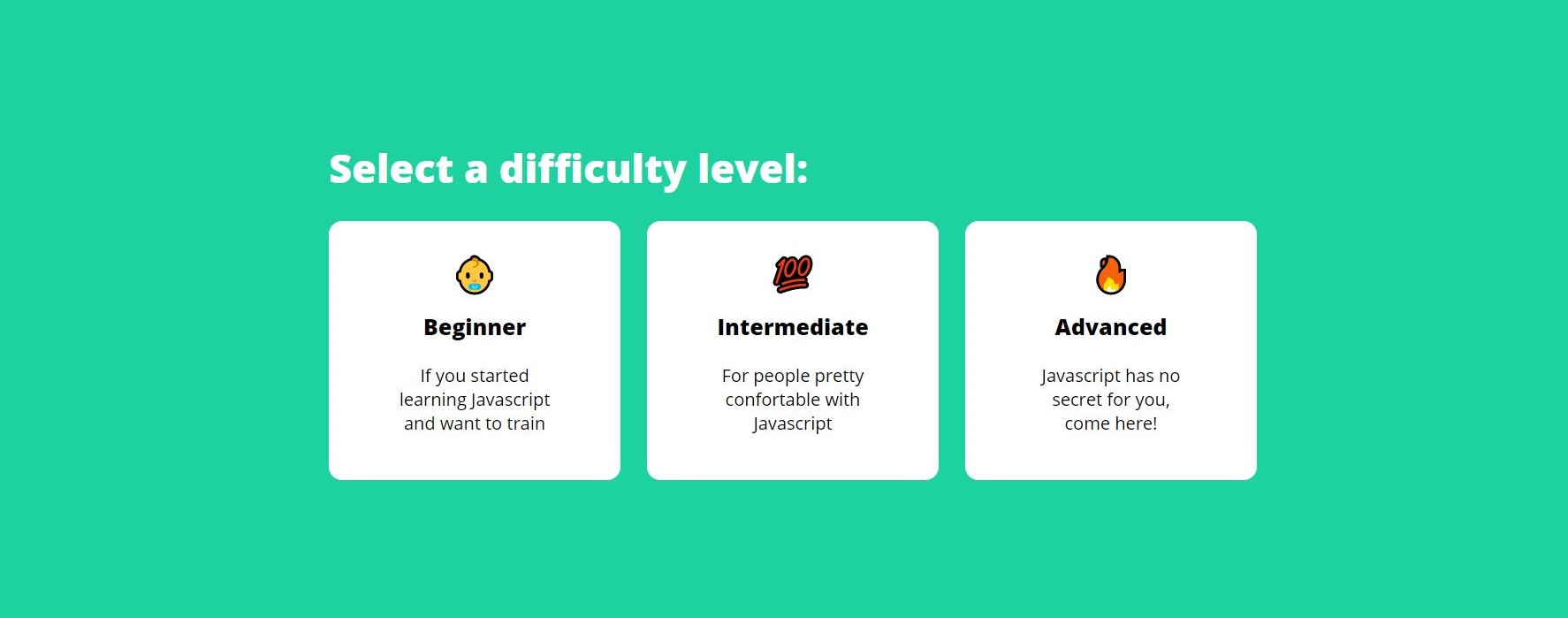Building a quiz application with React.js, GraphQL and Prisma
I recently started a new side-project during my free-time, and I thought it could be cool to share my impressions about the technologies I used, the difficulties I encountered, etc. The project is not finished yet, but the main features are built.
I wanted to make a web application with a client & server side, but not something that would take too long. So I thought about a javascript quiz with a time-limited question series, and the ability to save user results.
The technologies
Instead of making this project with Vue.js, which is my favorite front-end framework and the one I know best, I chosed React.js because it's been a while since last time I used it. It's cool to change sometimes, and I wanted to test the new "hooks" feature.
I started working with GraphQL more than one year ago, and I really appreciate this new way of making APIs. So I chosed to build a GraphQL server, with the help of graphql-yoga, which allows you to setup them in a really simple way. The client side is provided by Apollo Client for React, which is now working with hooks, it's the perfect match for this project.
For the database part, I tried a technology I knew nothing about: Prisma.
Prisma?
Basically, Prisma is an ORM that allows you to declare models in a specific file type, and perform server-side operations. The cool part is that you can quickly setup a demo server, and plug the endpoint in your app. Then, you can manage the database rows from an admin interface.
Migrating the schema is pretty fast, you just need to update the .prisma datamodel file in your server, run prisma deploy from the terminal and it's done. It looks like this:
type Question {
id: ID! @id
level: Level! @default(value: BEGINNER)
title: String!
code: String!
answers: [Answer!]! @relation(link: TABLE)
}
type Answer {
id: ID! @id
text: String!
isCorrect: Boolean! @default(value: false)
}
enum Level {
BEGINNER
INTERMEDIATE
ADVANCED
}The directives are easy to use, it's pretty the much the same concepts as other ORMs (relations, default values...)
When deploying the schema file, basic GraphQL operations (create a question, find a question by id, update an answer...) are automatically setup. A Prisma client is also generated in the same time. This local client is an abstraction of the top-level Prisma server, which allows you to implement custom typedefs and resolvers, and perform operations in the database.
It's pretty easy to use, but I encountered some issues that drove me crazy when working with Prisma.
Here, for example, the question query is needing a fragment to ensure that answers field is returned, otherwise it's not:
const FRAGMENT_QUESTION = `
fragment Q on Question {
id
level
title
code
answers {
id
text
isCorrect
}
}
`
const resolvers = {
Query: {
questions(root, args, context) {
const level = args.level || 'INTERMEDIATE'
// Without fragment, no answers :(
return context.prisma.questions({ where: { level } }).$fragment(FRAGMENT_QUESTION)
},
},
...
}Another issue was about a migration to attach 2 relations with aliases on a type, that gave a weird error. I had to add one type, run deploy, add the other one and redeploy:
type Result {
id: ID! @id
userId: ID!
dateTime: DateTime!
question: Question! @relation(link: TABLE)
givenAnswer: Answer @relation(name: "GivenAnswer", link: TABLE)
correctAnswer: Answer @relation(name: "CorrectAnswer", link: TABLE)
}
# Can't migrate givenAnswer and correctAnswer at the same time :( It's somehow blurry to switch between Prisma client's abstracted schema (which is actually in your server), and the "under the hood" types of the Prisma server.
Authentication
For now, we can sign in using a GitHub account. Server instantiates a JSON web token, which is sent back to the client, and used in the authorization header. Apollo client provides an easy way to set this header whenever user gets logged in, with request param:
const client = new ApolloClient({
uri,
request: (operation) => {
operation.setContext({
headers: {
authorization: authToken ? `Bearer ${authToken}` : ''
}
})
}
})The features
For the moment, the quiz features a home screen:

A difficulty level selection:

...and then, the quiz view!
(16 is the current coutdown value)

Given answers are stored in the local component state. On the last one registered, they are all sent in a mutation to create results in database (because we need to complete the quiz entirely to save and get results).
Once it's done, results are sent back by the mutation, and displayed:

The next steps: the previous quiz results screen, and the leaderboard. I also need to fill the database with a lot of questions, so it's not always fetching the same ones. I plan to post a new article when these features are integrated.
Thanks for reading!
